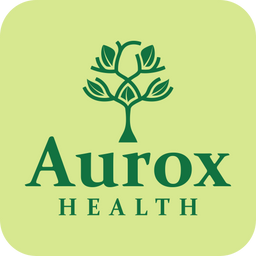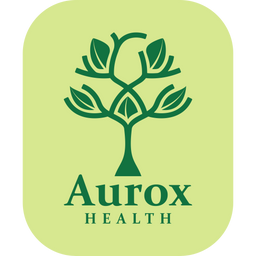I. Introduction
Many people today suffer from digital eye strain due to constant use of devices like smartphones and laptops. 💻 Dry eyes, headaches, and blurred vision often mark this condition. It mainly comes from too much time spent looking at digital screens and their blue light. This article examines the role dietary supplements play in enhancing eye health and offers hope to those affected by screen-related issues. 👀
II. Understanding Digital Eye Strain
Digital eye strain, also known as computer vision syndrome, encompasses a range of ocular and visual symptoms. 👁️Symptoms like discomfort, fatigue, dry eyes, blurry vision, and headaches often get worse with poor lighting, screen glare, or wrong viewing distances. 🧐 Digital screens emit blue light, a high-energy light with short wavelengths, which plays a big role in causing these symptoms. Extended exposure to blue light may cause harm to the retina and increase the risk of age-related macular degeneration.
III. The Impact of Digital Eye Strain: Navigating Symptoms and Long-Term Consequences
A. Signs and Symptoms Illuminated
-
Eye Fatigue:
Feeling tired or strained eyes after prolonged screen use. Recognize eye fatigue by paying attention to sensations of heaviness or discomfort.
-
Headaches:
Persistent headaches, often originating from the forehead or temples. If you experience recurrent headaches during or after screen time, it might be a sign of digital eye strain.
-
Blurred Vision:
Momentary loss of sharpness in vision, especially after focusing on a screen for an extended period. If your vision becomes blurry, take breaks and assess whether it improves.
-
Dry Eyes:
A sensation of dryness, grittiness, or itchiness in the eyes. Consistent dryness may indicate insufficient blinking during screen use.
-
Neck and Shoulder Pain:
Discomfort or pain in the neck and shoulder area. Improper screen positioning can contribute to strained neck and shoulder muscles.
-
Difficulty Focusing:
Challenges in maintaining focus, especially when shifting between screens and other tasks. If you struggle to stay focused or your attention wavers, consider that digital eye strain could be affecting you.
B. The Visionary Forecast: Long-Term Implications
-
Myopia Progression:
Continued exposure to digital screens may contribute to the progression of nearsightedness (myopia). Regular eye check-ups help monitor changes in vision and address myopia concerns.
-
Impact on Overall Visual Acuity:
Prolonged digital eye strain may influence overall visual sharpness. Adhering to eye-friendly habits and seeking professional advice can help mitigate potential long-term impacts.
Understanding these signs, symptoms, and long-term consequences empowers individuals to proactively manage digital eye strain. By identifying these signs, individuals can ease discomfort, adjust their habits, and consult experts for better eye health in our digital world. 😎
IV. The Role of Diet in Eye Health
The adage "you are what you eat" rings especially true when it comes to eye health. 🍽 Key nutrients such as omega-3s, lutein, zeaxanthin, and vitamins A, C, and E are vital for maintaining eye health. They can also help reduce the risk of chronic eye diseases. Omega-3 fatty acids, plentiful in fish, enhance eye health and aid in visual development and retinal maintenance. Lutein and zeaxanthin are crucial carotenoids in foods like leafy greens and eggs. They protect your eyes from damaging light, including blue light. 🤓
V. Key Dietary Supplements for Combating Eye Strain
-
Benefits: These are essential fats not made in the body and must be obtained through diet or supplements. They are vital for cell structure, particularly in the eyes, and help lessen symptoms of dry eye. Research indicates that omega-3 fatty acids in fish oil might protect against age-related macular degeneration (AMD).
-
Sources: Flaxseed, fish oil, and chia seeds are excellent sources of Omega-3. 🐟
2. Lutein and Zeaxanthin
-
Benefits: These carotenoids are found in high concentrations in the retina. Research indicates that these substances serve as antioxidants. They shield our eyes from damaging high-energy light, like the ultraviolet rays in sunlight and blue light from screens.
-
Sources: Green leafy vegetables, corn, eggs, and grapes are rich in these nutrients. 🍇
-
Benefits: These vitamins help keep your eyes healthy and lower the chance of long-term eye problems. Vitamin A improves your night vision. Vitamin C guards your eyes against free radicals. Vitamin E supports your eye cell membranes' health.
-
Sources: Carrots, citrus fruits, almonds, and sunflower seeds are great sources of these vitamins. 🥕
4. Zinc
-
Benefits: Zinc helps move vitamin A from the liver to the retina. It also helps make melanin, which protects our eyes.s.
-
Sources: Oysters, red meat, poultry, and beans. 🦪
Many studies have highlighted how vital these supplements are. They help lessen the impact of screen exposure and improve eye health.
VI. Table: Summary of Eye Health Supplements
|
Name of Supplement |
Primary Benefits |
Recommended Dosage |
|---|---|---|
|
Omega-3 Fatty Acids |
Reduces dry eye symptoms |
500-1000 mg daily |
|
Lutein & Zeaxanthin |
Filters harmful blue light |
10-20 mg daily |
|
Vitamin A, C, & E |
Essential for eye health |
Varies by vitamin |
|
Zinc |
Aids in melanin production |
8-11 mg daily |
VII. How to Choose the Right Supplements
When embarking on the journey of supplement selection, there are key factors one should consider:
-
Quality: Assessing the purity and formulation of the supplement is crucial. High-quality supplements are free from unnecessary fillers or contaminants.
-
Certification: Third-party certifications, such as USP (United States Pharmacopeia) or NSF International, provide an additional layer of trust and assurance regarding the supplement's quality and safety.
-
Ingredients: Understanding the source of the ingredients, whether they are synthetic or natural, and their potential effects is essential. This knowledge aids in making an informed choice that aligns with one’s health needs and preferences.
VIII. Incorporating Healthy Habits: Synchronizing Lifestyle and Blue Light Defense 🌿👁️
A. Synergistic Lifestyle Tips
Complement your supplement regimen with these lifestyle tips:
-
20-20-20 Rule: Every 20 minutes, take a 20-second break, and look at something 20 feet away to reduce eye strain.
-
Adjust Screen Settings: Optimize screen brightness, contrast, and font size to create a more comfortable viewing experience.
-
Stay Hydrated: Proper hydration supports overall health, including eye moisture.
-
Regular Eye Exams: Schedule routine eye check-ups to detect and address any emerging issues promptly.
B. Holistic Prevention Approach
Forge a holistic defense against digital eye strain:
-
Balanced Diet: Include nutrient-rich foods for overall eye health.
-
Regular Eye Check-ups: Schedule regular eye examinations to monitor and address any vision changes.
-
Eye-Friendly Environment: Create an ergonomic workspace with proper lighting and screen positioning.
IX. Conclusion
As we conclude our thorough investigation into dietary supplements and their effectiveness against digital eye strain, we must acknowledge their crucial role in preserving and improving ocular health. In today's digital world, screens are a constant presence in our lives. Therefore, actively protecting our eyes has become crucial.
Omega-3 Fatty Acids, Lutein, Zeaxanthin, and Vitamins A, C, E, along with Zinc, provide key benefits. They protect our eyes from blue light and risks linked to long screen exposure. These supplements do more than just ease dry eyes and blurry vision; they also support long-term eye health.
Remember, these supplements should enhance, not substitute for, a balanced diet and healthy living. Regular eye check-ups, proper screen usage, and eye relaxation techniques are equally important in maintaining good eye health. Moreover, everyone has unique health conditions and dietary requirements. Therefore, it's best to speak with healthcare experts before beginning any new supplement routine. They offer tailored guidance and confirm the safety and effectiveness of supplements, especially for individuals with existing health issues or those on other medications.
As we conclude, we encourage our readers to consider integrating these beneficial supplements into their daily routine. Taking care of your eyes now will improve your well-being and life quality later on. Don't wait until symptoms worsen; take a step today towards better eye health.






